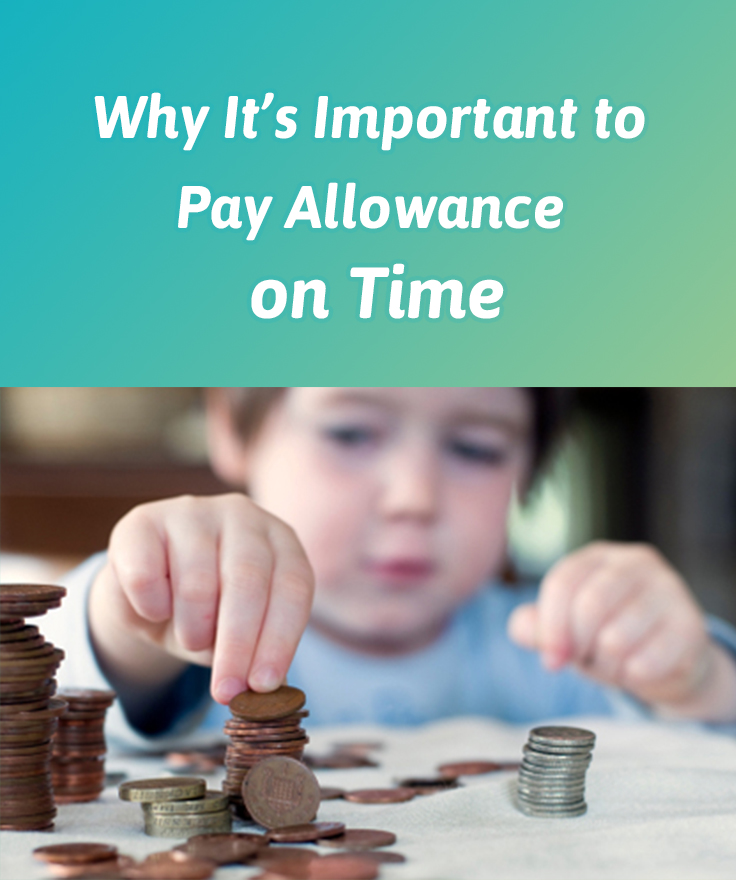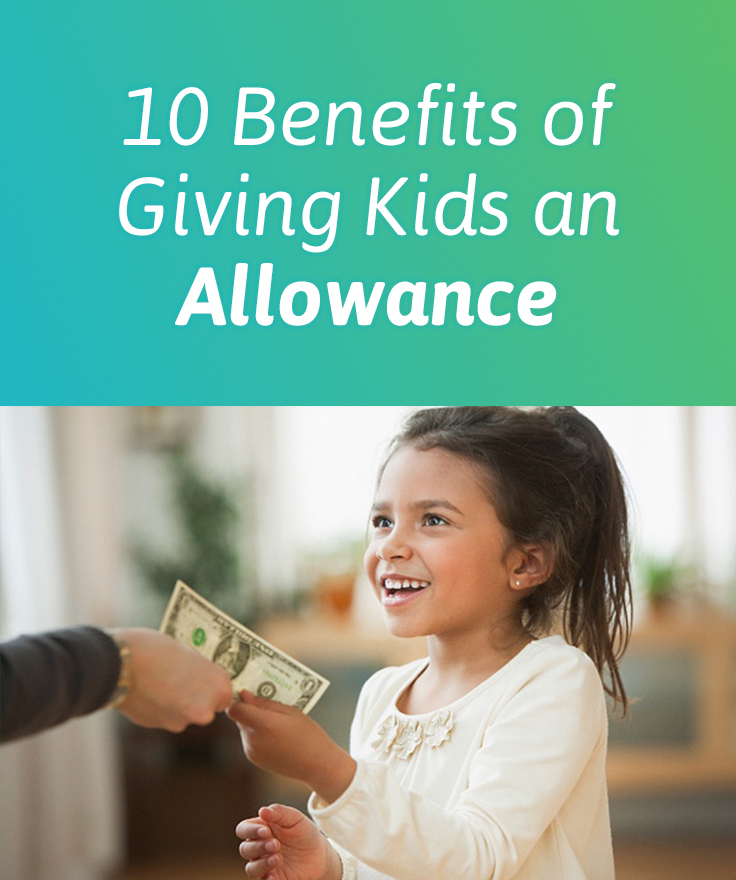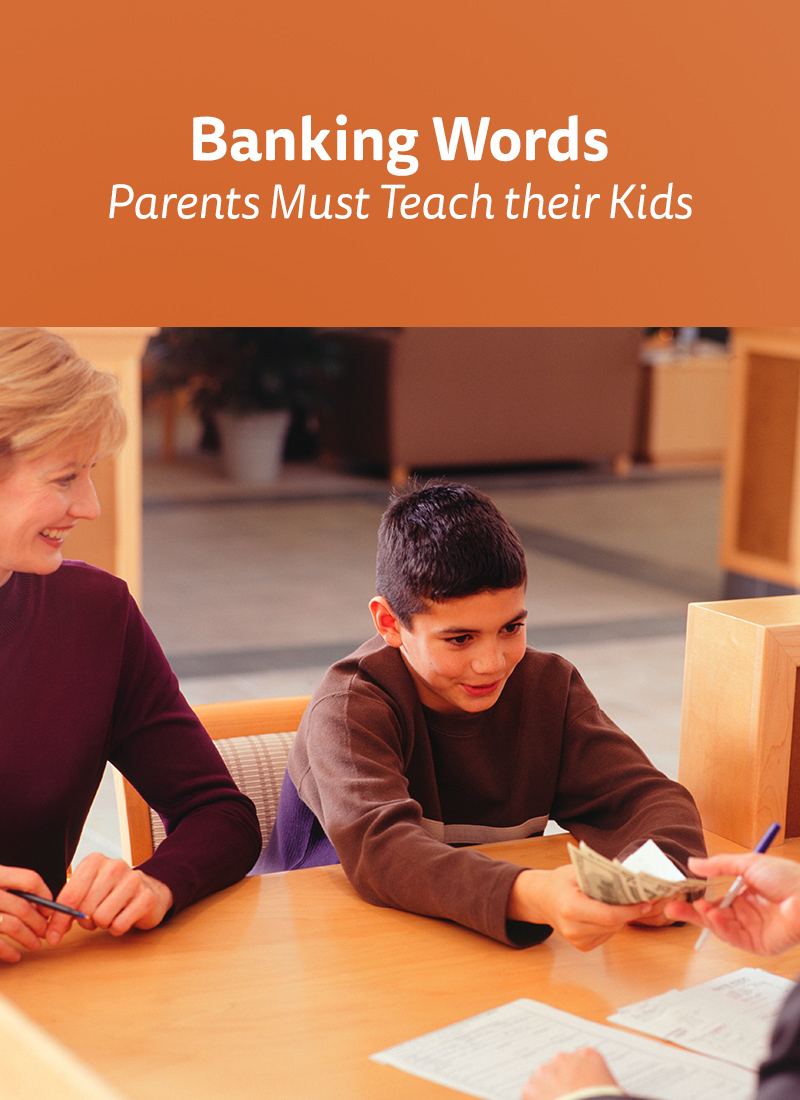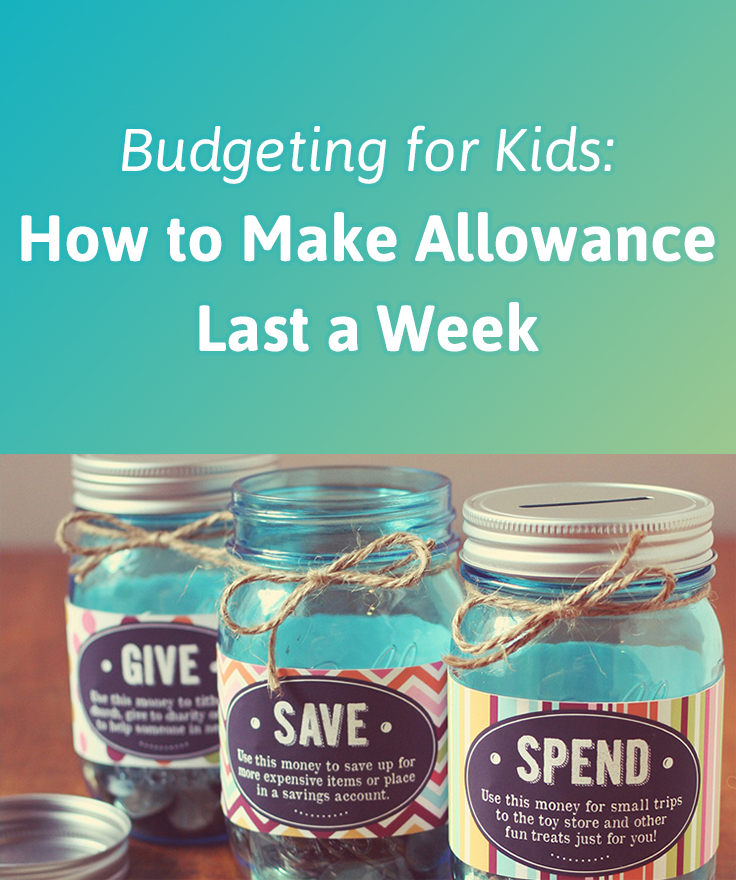Brandy Ellen, Author at Homey App for Families - Page 3 of 4
Why It’s Important to Pay Allowance on Time
 An allowance is a great way to teach kids the concept of money. Kids enjoy making their own money and feeling like they are a part of the family. With each chore that gets assigned your kid feels proud that they are finishing a task and going to be paid for that task completion. Paying an allowance helps to build confidence, responsibility and financial education for your kids. Sometimes the budget can get tight and we neglect to pay our kids their allowance on time, which is not a good practice to get into. Here are a few reasons why it’s important to pay allowance to your kids on time.
An allowance is a great way to teach kids the concept of money. Kids enjoy making their own money and feeling like they are a part of the family. With each chore that gets assigned your kid feels proud that they are finishing a task and going to be paid for that task completion. Paying an allowance helps to build confidence, responsibility and financial education for your kids. Sometimes the budget can get tight and we neglect to pay our kids their allowance on time, which is not a good practice to get into. Here are a few reasons why it’s important to pay allowance to your kids on time.
10 Benefits of Giving Kids an Allowance
 The discussion of whether or not you will give your kids an allowance is an important one.
The discussion of whether or not you will give your kids an allowance is an important one.
This debate happens quite frequently on Facebook where you will see parents that feel no allowance is necessary and others feel giving an allowance for larger chores makes sense.
There is no right answer for all households, but if you are one of those households that is debating giving your kids an allowance, read on to learn the benefits of giving kids an allowance.
Educating your Kids on Advertising
 Both online and in person marketplaces are full of advertising. Most kids notice this advertising but don’t think of the bigger picture and how it affects them.
Both online and in person marketplaces are full of advertising. Most kids notice this advertising but don’t think of the bigger picture and how it affects them.
Advertising can encourage the purchase of both necessary as well as unnecessary and potentially unhealthy products. From the day your kids are born to the day they leave this Earth, advertising will be a predominant part of their life.
Since kids are especially susceptible to these messages, which will stay with them throughout their lives, it’s important to educate your kids on how advertising works.
Strategies to Help your Kids Become More Responsible
 The first thing every parent seems to do is blame themselves for behavioural issues that arise with their kids. While every parent has one mission and one mission only, to raise their kids to be well rounded, good mannered, intelligent adults, there’s still a piece that parents overlook. No matter how much you work to teach your kids, they still have that little element of personal choice. Kids can be taught to be more responsible but it will take them a few mishaps to learn how to truly be accountable for their actions. Today we want to discuss a few strategies to help your kids become more responsible, this alleviates the parents feeling as if they failed and helps guide the kids forward to being responsible, well-rounded adults.
The first thing every parent seems to do is blame themselves for behavioural issues that arise with their kids. While every parent has one mission and one mission only, to raise their kids to be well rounded, good mannered, intelligent adults, there’s still a piece that parents overlook. No matter how much you work to teach your kids, they still have that little element of personal choice. Kids can be taught to be more responsible but it will take them a few mishaps to learn how to truly be accountable for their actions. Today we want to discuss a few strategies to help your kids become more responsible, this alleviates the parents feeling as if they failed and helps guide the kids forward to being responsible, well-rounded adults.
Money Goals for Kids
 While kids are quick to understand short term money goals, teaching them to set mid and long term financial goals may not be that easy. If you work to follow all of the suggestions we have shared here, then perhaps the financial goal teaching side of parenthood will be easier for you and your kids.
While kids are quick to understand short term money goals, teaching them to set mid and long term financial goals may not be that easy. If you work to follow all of the suggestions we have shared here, then perhaps the financial goal teaching side of parenthood will be easier for you and your kids.
Children need to learn how to set money goals because they will become an adult at some point and it is smart that they learn to to start planning for their financial future now.
Here are some tips on how you can help your kids create their own money goals without much stress.
How to Explain Credit Cards to Kids
 There’s much discussion about teaching kids to be financially responsible but what about credit responsibility?
There’s much discussion about teaching kids to be financially responsible but what about credit responsibility?
There comes a time in every parent’s life when they have to explain credit cards to kids. While this may seem like something you don’t really desire to explain, it’s necessary.
Credit matters more than just the plastic cards you carry in your wallet or purse. It’s time to start explaining credit cards to kids so that they know the true impact of using such a plastic item.
Important Banking Words Parents Must Teach their Kids
 One subject that can impact your kids’ life well into adulthood is financial education. Most school systems don’t teach any financial skills, but parents should.
One subject that can impact your kids’ life well into adulthood is financial education. Most school systems don’t teach any financial skills, but parents should.
You can start by teaching your kids banking words so that they grow up to have a well-developed education in finance and understanding of what is going on with their money. You can practice them with your kids by having a relaxed conversation with your kids when they accompany you to the bank.
Here are some basic banking words that are often used in everyday life, so your kids should soon get a chance to hear them or even use them.
Budgeting for Kids: How to Make Allowance Last a Week
 While there is much debate about paying kids an allowance, there are many benefits to implementing it. Paying kids some form of an allowance during their childhood is an easy way to teach them some budgeting skills. As most parents know, lessons instilled during childhood can go a long way into adulthood, allowing your child to grow up being able to manage money more efficiently.
While there is much debate about paying kids an allowance, there are many benefits to implementing it. Paying kids some form of an allowance during their childhood is an easy way to teach them some budgeting skills. As most parents know, lessons instilled during childhood can go a long way into adulthood, allowing your child to grow up being able to manage money more efficiently.
If you are someone who pays their children allowance on a weekly basis and finds that kids are blowing their cash way too quickly, then read on for some tips on how to teach kids to budget their allowance so that it lasts all week long.
The Difference between Responsibilities and Jobs
 When discussing the difference between responsibilities and jobs for kids, it is defined rather differently than the adult world.
When discussing the difference between responsibilities and jobs for kids, it is defined rather differently than the adult world.
You see, parents set a list of specific responsibilities for kids that are expectations regardless of anything else. Responsibilities for kids could include being a good human being, cleaning up after themselves and just doing the everyday tasks that a human being should be responsible for, such as good hygiene.
Most parents would define a job for kids as something like cleaning the toilet or mowing the lawn. A job is something that goes up and beyond your everyday responsibilities.
What Should Kids Pay For With Their Own Money
 There comes a point in time when your child will start earning their own money. Whether your child is earning money from chores or a part time job, if they start making their own cash it’s time to think about what they should be responsible for purchasing with their own money.
There comes a point in time when your child will start earning their own money. Whether your child is earning money from chores or a part time job, if they start making their own cash it’s time to think about what they should be responsible for purchasing with their own money.
Children grow up way too fast and teaching financial responsibility and a want versus a need becomes an important role of parents. If your child has started earning their own money and you wonder what children should pay for with their own money, then read on to learn some things your child could become responsible for purchasing.
